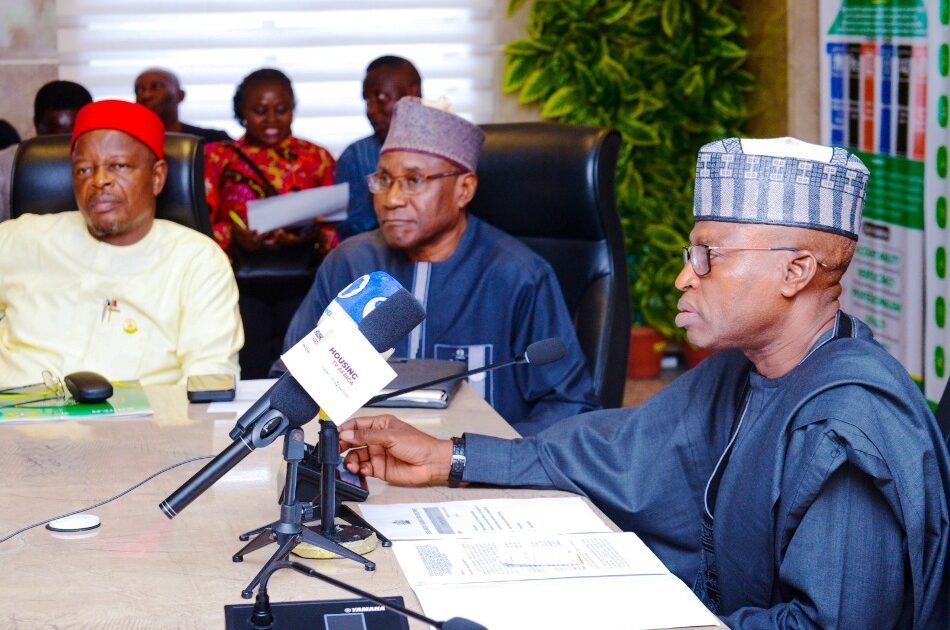The Nigerian Ministry of Housing and Urban Development has taken a significant step towards strengthening the nation’s building and construction industry by inaugurating a 21-member National Building Code Advisory Committee (NBCAC). This committee, composed of registered professionals, representatives from key institutions, NGOs, and each of the country’s six geopolitical zones, is tasked with overseeing and ensuring the effective implementation of the National Building Code. The Minister of State for Housing and Urban Development, Yusuf Attah, emphasized the importance of the committee’s work in ensuring that all buildings in Nigeria meet specified standards for safety, durability, and sustainability. This move signifies a commitment to reforming the construction sector and mitigating risks associated with substandard construction practices. The inauguration marks a renewed effort to enforce regulations and foster professionalism within the industry, ultimately aiming to safeguard lives and protect investments in infrastructure.
The establishment of the NBCAC follows a history of attempts to regulate the Nigerian building industry. The initial efforts to create a National Building Code began in 1987 and culminated in the code being signed into law in 2006. However, its implementation faced significant hurdles due to challenges in ratification, enforcement, and compliance. The Minister acknowledged these past challenges and highlighted the importance of the reconstituted committee in overcoming them. He pointed out that the code addresses critical issues such as the lack of urban planning, frequent building collapses, the engagement of unqualified professionals, and a poor maintenance culture, all of which contribute to safety risks and economic losses. The renewed focus on the building code underscores the government’s commitment to addressing these long-standing problems and creating a more robust and reliable construction sector.
The NBCAC’s responsibilities include periodic reviews of the National Building Code, recommending and guiding specialized technical subcommittees, and reporting progress and challenges to the Ministry. The Minister emphasized the importance of diligent oversight and enforcement of the code at all levels of government – federal, state, and local. This multi-tiered approach aims to create a comprehensive and consistent application of the code across the country, thereby ensuring a uniform standard of building quality and safety. The Minister stressed the seriousness of this national assignment, urging the committee members to approach their work with utmost dedication and professionalism. He emphasized the committee’s role in ensuring that the building code leads to tangible improvements in the safety and resilience of the built environment.
The Minister underscored the government’s dedication to ensuring safe, affordable, and sustainable housing, resilient infrastructure, and sustainable urban development. He expressed confidence that the enforcement of the Building Code would create jobs, protect lives and property, and foster the harmonious growth of cities. The Permanent Secretary, Dr. Shuaib Belgore, echoed this sentiment, emphasizing the code’s importance in setting minimum standards for building design, construction, and maintenance nationwide. He reiterated that the reconstitution of the committee was a strategic step towards ensuring modern standards are applied in all housing interventions, safeguarding lives, preserving property value, and promoting resilience. This alignment of objectives between the Minister and the Permanent Secretary emphasizes the unified effort within the ministry to prioritize the enforcement of building regulations.
The Chairman of the NBCAC, Mohammed Faworaja, assured the Minister of the committee’s commitment to diligently and professionally discharging their responsibilities, adhering to all requirements. He highlighted the committee’s intention to encourage states to domesticate the National Building Code, adapting it to their specific contexts and needs. This approach recognizes the diverse conditions across the country and aims to ensure the code’s relevance and applicability at the local level. The committee’s commitment to state-level adoption of the code highlights the importance of collaboration between federal and state authorities in achieving nationwide implementation.
The diverse composition of the NBCAC, drawing expertise from various professional bodies and representing diverse geographical regions, demonstrates a comprehensive approach to tackling the challenges in the building and construction sector. The committee members represent regulatory councils for architects, engineers, builders, town planners, estate surveyors, quantity surveyors, surveyors, and environmental professionals. Representation also includes federal ministries such as Environment, Works, Health and Social Welfare, and the Federal Fire Service. The inclusion of representatives from the Standards Organisation of Nigeria, civil society, and NGOs ensures a broad range of perspectives and expertise are brought to bear on the task of improving building standards and practices. This multi-stakeholder approach aims to create a more holistic and robust regulatory framework.














